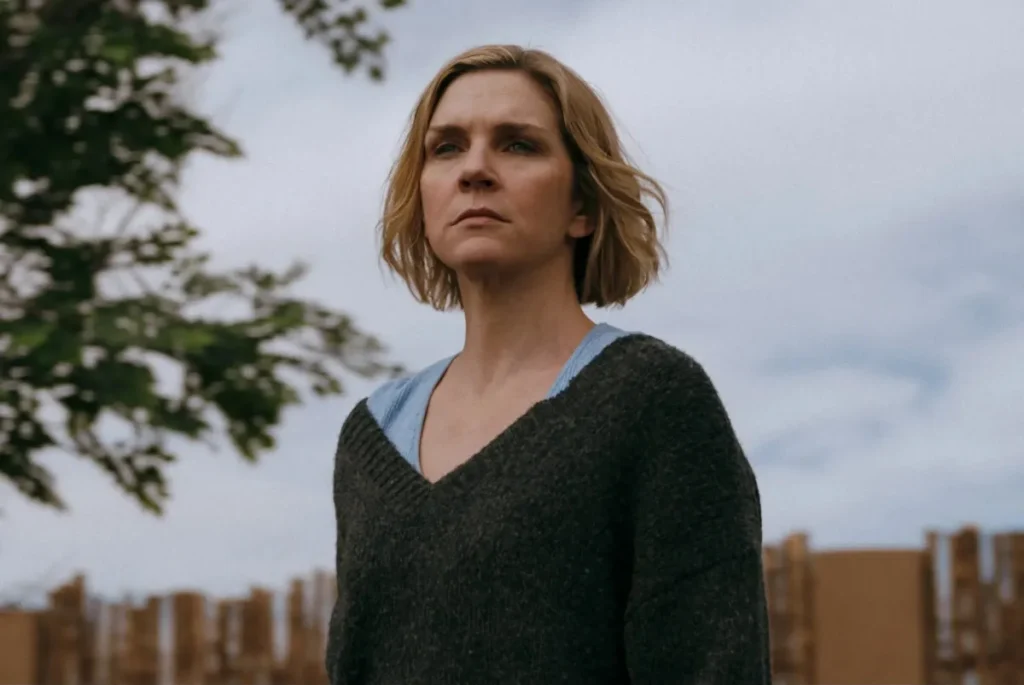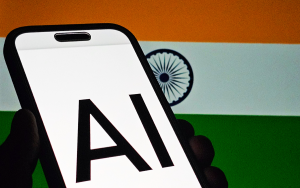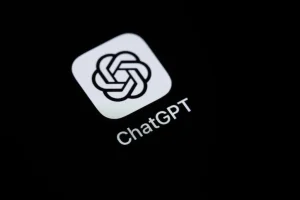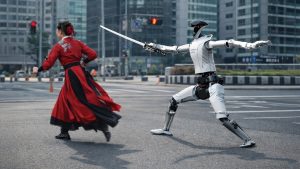‘Pluribus’: The Creator of ‘Breaking Bad’ Asserts It’s Uniquely Human-Made, Not AI.

Image Credits:Apple TV
Unique Disclaimer in Apple TV’s “Pluribus”
The new Apple TV show “Pluribus” features an intriguing disclaimer that has sparked conversations within the film industry: “This show was made by humans.” This brief yet significant note appears in the credits, right below a statement indicating that “animal wranglers were on set to ensure animal safety.” This setup opens up a larger debate regarding the role of generative AI in filmmaking and the importance of human creativity in the arts.
A Call for Transparency in Filmmaking
The inclusion of such a disclaimer serves as a model for other filmmakers who wish to emphasize the originality of their work. In an age where generative AI is becoming increasingly prevalent, highlighting that a project is entirely crafted by human hands can be a powerful statement. As audiences grow more discerning about the origins of their content, filmmakers may find it beneficial to adopt similar disclaimers.
Vince Gilligan’s Strong Stance Against AI
Vince Gilligan, the show’s creator and renowned director of classics like “Breaking Bad,” has been vocal about his disdain for AI. In a feature story with Variety, he stated unequivocally, “I hate AI.” This statement underscores a growing concern among creatives regarding the impact of artificial intelligence on the integrity of artistic work.
Gilligan goes beyond mere opinion, labeling AI as “the world’s most expensive and energy-intensive plagiarism machine.” His analogy of AI-generated content to “a cow chewing its cud — an endlessly regurgitated loop of nonsense” starkly illustrates his belief that AI lacks the originality and depth that human creators bring to their projects.
Criticism of AI in Content Creation
Gilligan’s criticism doesn’t stop there. He directed a pointed message at Silicon Valley, expressing frustration with how technological advancements often disrupt traditional industries. “Thank you, Silicon Valley! Yet again, you’ve f—ed up the world,” he stated. There’s an evident concern that the essence of storytelling, which has been passed down through generations, could be diluted by algorithms churning out content devoid of real human experiences and emotions.
“Pluribus”: A Return to Science Fiction
At its core, “Pluribus” is a return to the science fiction genre for Gilligan, who gained recognition as a writer on “The X-Files.” The show features Rhea Seehorn, a familiar face from “Better Call Saul,” in the role of a romantasy author facing an alien invasion. This premise offers a rich blend of romance and fantasy elements, showcasing Gilligan’s ability to craft compelling narratives that resonate with audiences.
The Creative Process: Human vs. AI
The creativity behind “Pluribus” exemplifies a crucial distinction between human-made content and that generated by AI. When humans create, they draw from personal experiences, emotions, and insights that machines simply cannot replicate. This human connection is essential for crafting authentic narratives that capture the audience’s imagination.
Gilligan’s warnings remind us that while AI can assist in various aspects of production—such as editing and special effects—it cannot replace the intricate and nuanced storytelling that comes from the human experience.
The Future of Filmmaking
As generative AI continues to evolve, the question arises: what does the future hold for filmmaking? With directors like Gilligan leading the charge against AI-generated narratives, the industry may witness a resurgence in traditional storytelling methods.
Emphasizing Originality in the Era of AI
Adding disclaimers similar to the one in “Pluribus” could become a common practice among filmmakers aiming to stand out in a crowded market. Emphasizing originality and the human touch can serve not only as a marketing tool but as a reminder to audiences about the intrinsic value of human creativity.
Conclusion: The Importance of Human Touch in Art
In conclusion, “Pluribus” stands as a testament to the enduring importance of human creativity in the realm of film and television. As AI technologies advance, it is crucial for artists to advocate for their craft and ensure that their work reflects their unique perspectives and experiences.
The evolving landscape of entertainment requires a balance between technological advancements and the irreplaceable qualities of human artistry. As Vince Gilligan and others in the industry remind us, storytelling is not merely a process but an essential aspect of the human experience—one that no algorithm can ever replicate.
In the ever-changing world of entertainment, innovations like the disclaimer found in “Pluribus” will likely serve both as a warning and a celebration of the artistry that defines filmmaking. The future may be uncertain, but one thing remains clear: the power of human creativity is irreplaceable.
Thanks for reading. Please let us know your thoughts and ideas in the comment section down below.
Source link
#Breaking #Bad #creators #show #Pluribus #emphatically #humans





